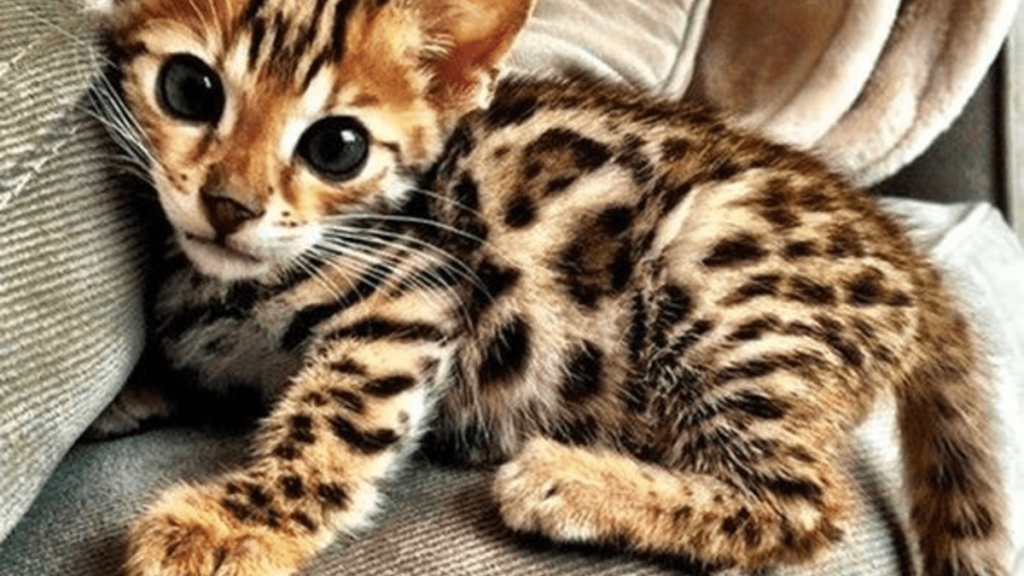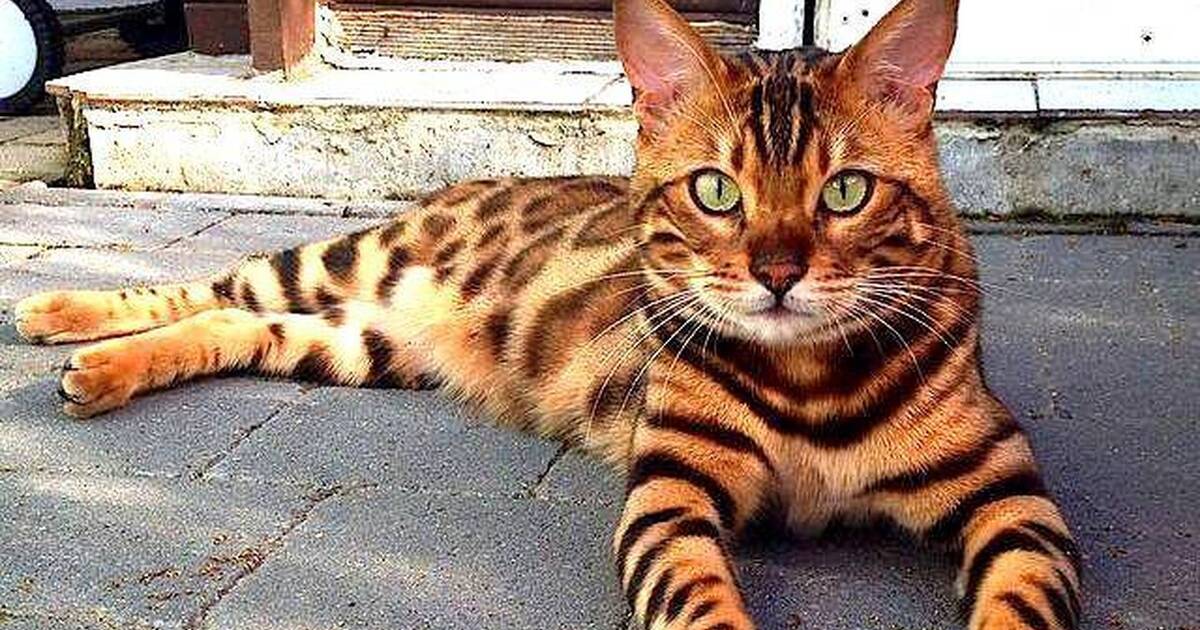Among all cat breeds, Bengal cats are without a doubt the most attractive. However, there are a few queries you might have, like the lifespan or life expectancy of a Bengal cat.
Many people will mistake Bengal cats for wild cats because they are so stunning and seem so natural. I am aware that all of my neighbors do, at least.
Bengal cats may look wild, but their temperament and behavior are more like those of domestic cats than those of an untamed jungle animal.
Without further ado, let’s find out how long Bengal cats live and if they can live forever! In addition, we’ll discuss the variables that affect a Bengal cat’s lifespan.
Table of Contents
- History Of Bengal Cats
- Size Of Bengal Cat
- How Long Does A Bengal Cat Typically Live?
- How Long Can An Indoor Bengal Cat Live For?
- How Long Can An Outdoor Bengal Cat Live For?
- Does Bengal Cat Nutrition Have An Impact On Life Expectancy?
- A Bengal Cat’s Life Expectancy May Be Increased Through Exercise.
- What Can You Do To Make Sure Your Bengal Cat Lives Longer?
History Of Bengal Cats
Breeder Jean Mill, who is based in California, is credited with creating the first Bengal cat to be recorded. In 1963, she created this breed by mating a Domestic Shorthair cat with an Asian Leopard cat. Given that Persian cats can trace their ancestry back to the 1600s, Bengal cats are considered to be a more recent breed.
Asian leopard cats are wild cats that are comparable in size to domestic cats and can be found all over Asia. You’ll notice that Bengal cats share many traits with the Asian Leopard, including their distinct spots, vivacious personalities, and love of playing in the water.
Size Of Bengal Cat
Large to medium-sized cats are the norm for Bengals. They may weigh 8 to 15 pounds or more, and they may be between 13 and 16 inches tall. These are obviously generalizations, and each Bengal cat may vary.
How Long Does A Bengal Cat Typically Live?
Bengal cats can live for 12 to 16 years on average. Bengal cats can live longer if you provide them with the right nutrients, ensure that they get enough exercise, take them to the vet on a yearly basis, and keep them safe.
The oldest Bengal cat alive is reportedly 34 years old. Bengal cats frequently live into their twenties, and other cat breeds have been known to live longer (see Nutmeg, the 32-year-old cat), though this isn’t proven.
How Long Can An Indoor Bengal Cat Live For?
Bengal cats that are kept indoors typically live for 12 to 16 years. Bengal cats that live indoors outlive Bengal cats that live outdoors.
If given enough room to play and exercise, an indoor Bengal cat will live a long, healthy life and will typically outlive an outdoor Bengal cat. If a Bengal cat lives inside and is healthy, eats a nutritious diet, and exercises regularly, it is also possible for it to live up to and slightly beyond 20 years of age.

How Long Can An Outdoor Bengal Cat Live For?
If they are healthy, outdoor Bengal cats typically live for 10-15 years, which is a shorter lifespan than indoor Bengal cats. A greater proportion of outdoor Bengal cats than indoor Bengal cats pass away at a young age as a result of environmental dangers that could harm or kill them.
Domestic cats kept exclusively outside typically die before turning five. If kept primarily indoors and let outside occasionally, your Bengal cat will be able to live nearly as long as an indoor Bengal.
Does Bengal Cat Nutrition Have An Impact On Life Expectancy?
The expression, “you are what you eat,” applies equally to human beings and Bengal cats. Bengal cats are fundamentally different from other cats in that they need a special diet to live long and healthy lives.
It is ideal for a Bengal cat’s diet to be as similar to what it would consume in the wild as is practical. For your Bengal cat, a well-balanced diet is crucial. Avoiding some of the more well-known cat food brands that offer flavored grain and filler-based food may be necessary for this situation.
A Bengal cat must receive the appropriate nutrition as well. The meat that Bengal cats eat provides them with the protein they need. Additionally, this will give them access to taurine and other nutrients, keeping your Bengal cat healthy. Since some foods are poisonous to Bengals and can cause them to become ill or even die, you’ll also need to be aware of what you shouldn’t feed your Bengals.
A Bengal Cat’s Life Expectancy May Be Increased Through Exercise.
Bengal cats have powerful bodies and are active pets by nature. This is partially a result of genetics, as their ancestor, the Asian leopard cat, is renowned for its agility and capacity to scale trees.
Bengal cats are naturally active cats, so it’s essential for them to get plenty of exercises if they want to live a long and healthy life. The ideal Bengal cat may not be for you if you like to sleep in or want a cat that will go about its business all day.
For Bengals to be flexible, energetic, and healthy, they need to exercise properly and consistently. If your cat is an indoor cat, set aside at least 15 minutes of entertainment twice daily. In addition to keeping them healthy, it will help you if your cat wakes you up in the middle of the night or acts out suddenly.
What Can You Do To Make Sure Your Bengal Cat Lives Longer?
Certain health issues affect some cat breeds more than others. Despite the fact that the amount of information on the internet is constantly growing, it is crucial that you leave diagnoses and examinations to the professionals.
To make sure your cat is healthy, schedule routine visits with the vet. As a result, you should visit your Bengal’s veterinarian once every six to twelve months. In reality, cats are thought to be tough animals. In fact, the illness may have advanced to the point where it is no longer treatable by the time a cat’s owner notices something is wrong.
A knowledgeable vet will know what to look for, where to look, and how to administer any vaccinations that will strengthen your Bengal cat’s immune system, even if it lives indoors.
A Bengal cat typically lives 12 to 16 years. Your Bengal cat, however, can live a longer, happier, and healthier life if you feed him or her the right food, ensure that he or she gets enough exercise, take them to the vet once a year, and keep them or her safe.
